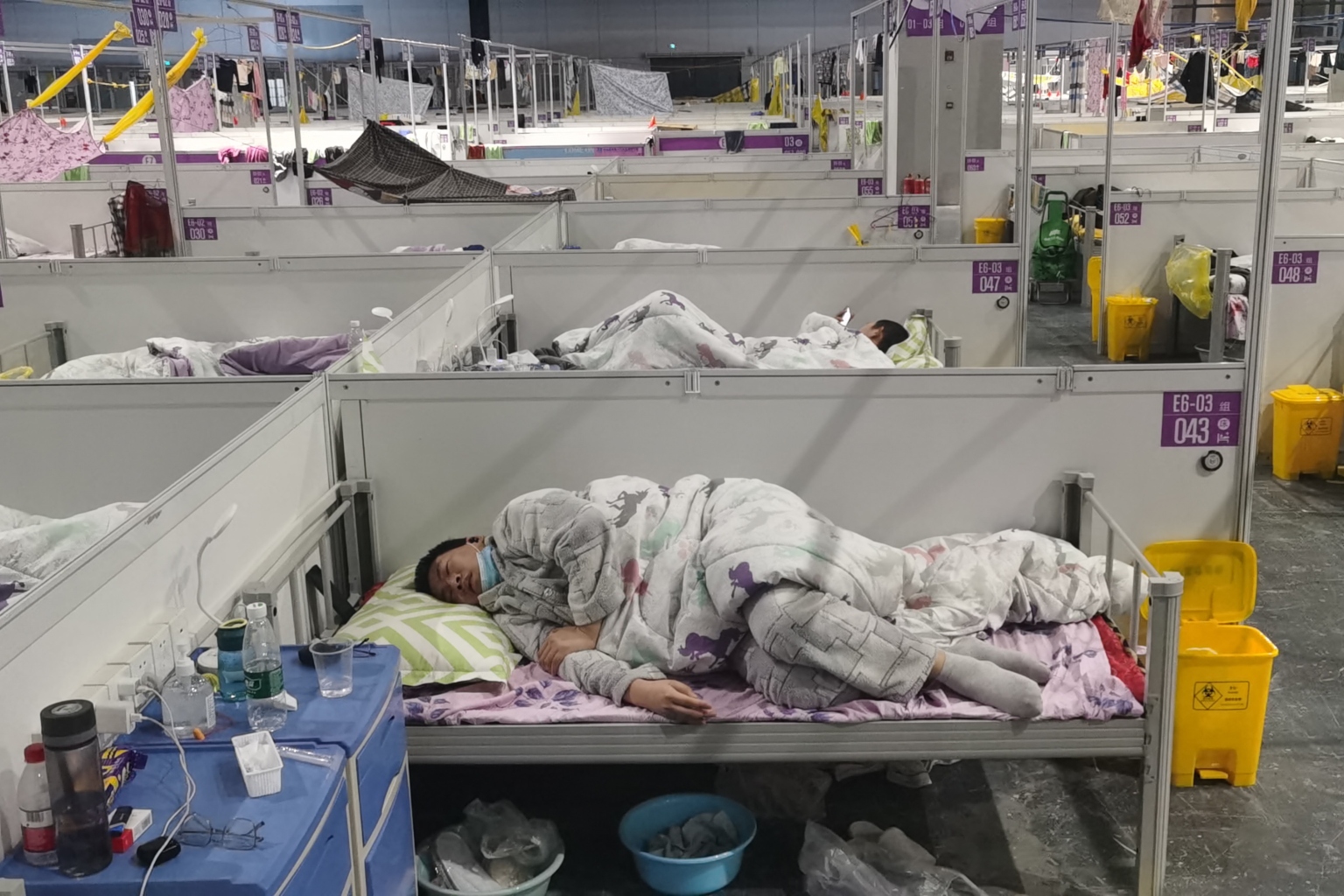Shanghai reports 7 more Covid-19 deaths, steel hub Tangshan enters lockdown
Sign up now: Get insights on Asia's fast-moving developments

Shanghai's reporting of its first deaths comes over a month into its outbreak.
PHOTO: EPA-EFE
Follow topic:
SHANGHAI (BLOOMBERG) - Shanghai reported another seven Covid-19 deaths as the Chinese financial hub grapples with a record outbreak that's brought unprecedented disruptions to residents and threatens the country’s economic growth.
The people who died were aged between 60 and 101 and had severe underlying health conditions, and follow three deaths announced on Monday.
Shanghai reported 20,416 new infections on Tuesday (April 19), a decline from a recent peak though still elevated as the coronavirus continues to spread through the city.
Shanghai's reporting of its first deaths comes over a month into its outbreak and as debate grows over its official death toll, which is strikingly lower than countries with higher vaccination rates.
The city's 25 million residents have been locked down for weeks, with many facing difficulties sourcing fresh food, basic necessities and health care.
While the rest of the world has pivoted to living with the virus, China is sticking to a Covid Zero strategy despite concerns about the growing social and economic toll.
China's top health official stressed on Monday that the country will continue to pursue its zero-tolerance approach.
If the country were to loosen its controls, a large number of people with underlying conditions, as well as the elderly and kids, will be threatened which would severely affect the stable development of the economy and society, Mr Ma Xiaowei, head of the National Health Commission wrote in an article published in state media.
Tangshan, a steelmaking hub about 180km from Beijing, has re-enforced Covid-19 lockdowns in some districts just over a week after lifting city-wide curbs.
The city locked down five districts from 6am on Tuesday and will conduct mass-testing, the local government said, after reporting 29 cases coronavirus cases on Monday.
The city locked down five districts from 6am on Tuesday and will conduct mass-testing, the local government said, after reporting 29 cases coronavirus cases on Monday.
Tangshan hosts about 13 per cent of China’s steel output, and some production was halted during a 20-day lockdown that ended on April 11.
The partial reversal will raise fresh concerns about steel output, and underscores China’s difficulties in stamping out Omicron’s spread.
The partial reversal will raise fresh concerns about steel output, and underscores China’s difficulties in stamping out Omicron’s spread.
The city of Kunshan, home to a raft of tech manufacturing operations, continues to face strict prevention measures that have disrupted the semiconductor chip supply chain.
The north-eastern province of Jilin, home to some 24 million people, is slowly emerging from a one-month lockdown after authorities said they had contained community spread.
While some cities still face restrictions, measures have been eased in the capital Changchun, allowing Volkswagen AG to gradually resume production at its plants.
Residents in Shanghai’s most severely restricted areas will need daily Covid tests in order to achieve zero community spread as soon as possible, Dr Hu Xiaobo, the city’s clinical test centre director, said at a briefing on Tuesday.
Tests will also be carried out in other parts that face less stringent curbs, he said.
While there’s no end in sight for when Shanghai will lift its lockdown, the city has published plans for resuming work – albeit with no time line – including getting businesses to use closed-loop management, where workers live on-site and are tested regularly.
Tesla Inc has restarted production at its factory in the city by using a closed-loop system that will require workers to sleep on the floor, Bloomberg News reported.
The Ministry of Industry and Information Technology has already sent a team to Shanghai to ensure stable production at key firms and is pushing for output to resume in key industries.
China faces growing industrial pressure and recovery of the sector remains unbalanced, spokesman Luo Junjie said at a briefing on Tuesday.
The fallout of the latest round of lockdowns shows the challenges officials face in implementing President Xi Jinping’s dual goals of continuing to target elimination of the virus while minimising the economic and social impacts of the Covid Zero strategy.
The government is also facing some of the strongest anti-government criticism in years from a public growing increasingly weary of harsh virus measures.
Dr Wu Zunyou, a virus expert with the Chinese Centre for Disease Control and Prevention, said Monday that many people have lost confidence in the current ‘dynamic Covid Zero’ strategy.
"Dynamic Covid Zero doesn’t mean pursuing zero infections, but rather stamping out any outbreak within a short period of time," Dr Wu wrote on Weibo. "Many said dynamic zero would affect the economy, but actually only dynamic zero can safely guard the economic development to the greatest extent."

